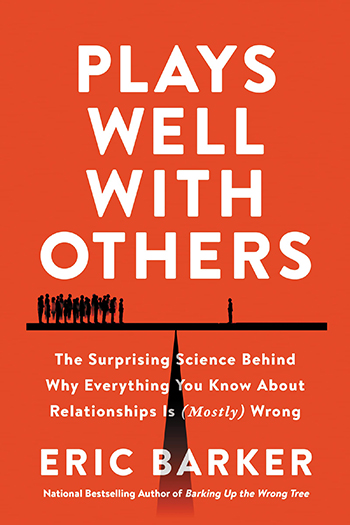We've all heard by now just how important strong relationships are to our health and well-being. But a lot of the common advice and conventional wisdom out there about how to build stronger relationships doesn't end up taking us closer to that goal. My guest today has spent years sorting through what really builds better friendships, reignites love, and helps people get closer to others, and he shares these research-backed insights in his new book: Plays Well with Others: The Surprising Science Behind Why Everything You Know About Relationships Is (Mostly) Wrong.
We've all heard by now just how important strong relationships are to our health and well-being. But a lot of the common advice and conventional wisdom out there about how to build stronger relationships doesn't end up taking us closer to that goal.
My guest today has spent years sorting through what really builds better friendships, reignites love, and helps people get closer to others, and he shares these research-backed insights in his new book: Plays Well with Others: The Surprising Science Behind Why Everything You Know About Relationships Is (Mostly) Wrong. Eric shares what he's learned today on the show, beginning with why we're good at figuring out someone's personality from the moment we meet them, but bad at reading their thoughts and feelings, and how to get better at the latter by making other people more readable, as well as how to make a better first impression yourself. We then turn to what makes friendship a unique relationship that makes us uniquely happy, and the two "costly signals" that most develop friendship. We also get into why friends we feel ambivalent about are actually worse for us than outright enemies. We spend the last part of our conversation on how the modern age is both the worst and the best time for marriage, and how the key to ensuring that yours is one of the happiest in history is maintaining positive sentiment override.
